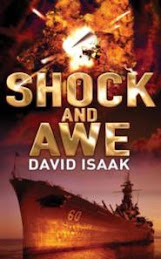aaaI shook my head, trying to be cool despite the fact that, in SoCal terms, she’d just asked, You gotta penis? and forced me to admit, Nope, ain’t got one.
That's a short exchange out of a novel of mine, written from the POV of a 15-year-old boy in 1960s California.
It goes without saying that we're a car culture here; even in car-mad America, California stands out as obsessive. In California, especially in Southern California, cars are nearly a necessity. For many (though I am not one of that number), they are also a deep source of pride and identity. Particularly in Hispanic Cruiser Culture (okay, amongst Pachucos), cars are decorated like shrines. (The word is chosen with deliberation. Sure, there may be fuzzy dice hanging from the rear-view mirror, but you are also likely to find a St Christopher medallion dangling beside them, and a statuette of the Virgin Mary on the dash.)
The custom of having the name of the boyfriend calligraphed on the driver's-side door, and the girlfriend's name on the passenger-side door even spread as far as Hawaii. (One car I saw in Honolulu had its doors labeled "Driver" and "Passenger," which I thought was pretty amusing.) That's one of the reasons that the song says Breakin' Up is Hard to Do; you need to have names scraped off, and that isn't cheap to accomplish without ruining the paint job.
Black American culture may be the source of the phrase "pimping your ride," but they are late in coming to the game. From flames on the side to faux-fur seats to hydraulic-lift struts to spoilers on the trunk, the Mexican Americans were there first.
And, of course, they were also the first to adopt custom rear window decals. These are large affairs, two to five feet wide, white lettering and designs on a clear backing. They might say any number of things--the name of the owner, the name of the owner's car club, the name of the car; the usual stuff.
But for the last decade, it has been common for rear-window decals to say things like
Grace Yglesias 1957 - 2009
Gone but not forgotten
embellished, of course, with a few angels and rays of light. And the practice seems to be spreading out of the Mexican-American community and onto the rear windows of all manner of other Californians.
At first, this seemed weird, and not just because it's odd to drive around in a cenotaph. (I've been waiting decades to use that word.) I mean, cars don't last forever. Are there tearful scenes when it's time to trade them in? ("But--but the Chevy is all we have left of Grandma!") Is there a scraping-of-the-decals ceremony? Do the cars have lower resale value because they seem haunted?
But then I understood. On average, most people keep their cars four or five years. That's a suitable, perhaps even excessive, period of mourning. But it's a way to get, as the psychobabble people have it, closure.
Trade in the car and close that chapter. One can't grieve forever.
Of course, this raises other issues.
"I can't believe he already sold the Jag--she's hardly cold yet!"
"I say she's still not over him. She's driving the Volvo around town, but I saw the Beemer is still parked in her garage."
As attractive as closure through trade-in might be, I think we ought to take a tip from the Vikings; when someone dies, we put them in their own car, set the thing on fire, and send it rolling down a symbolic stretch of freeway. More impressive by far, and a move that would certainly be supported by the automakers.
Of course, the California Air Resources Board isn't going to be too happy with this idea...



